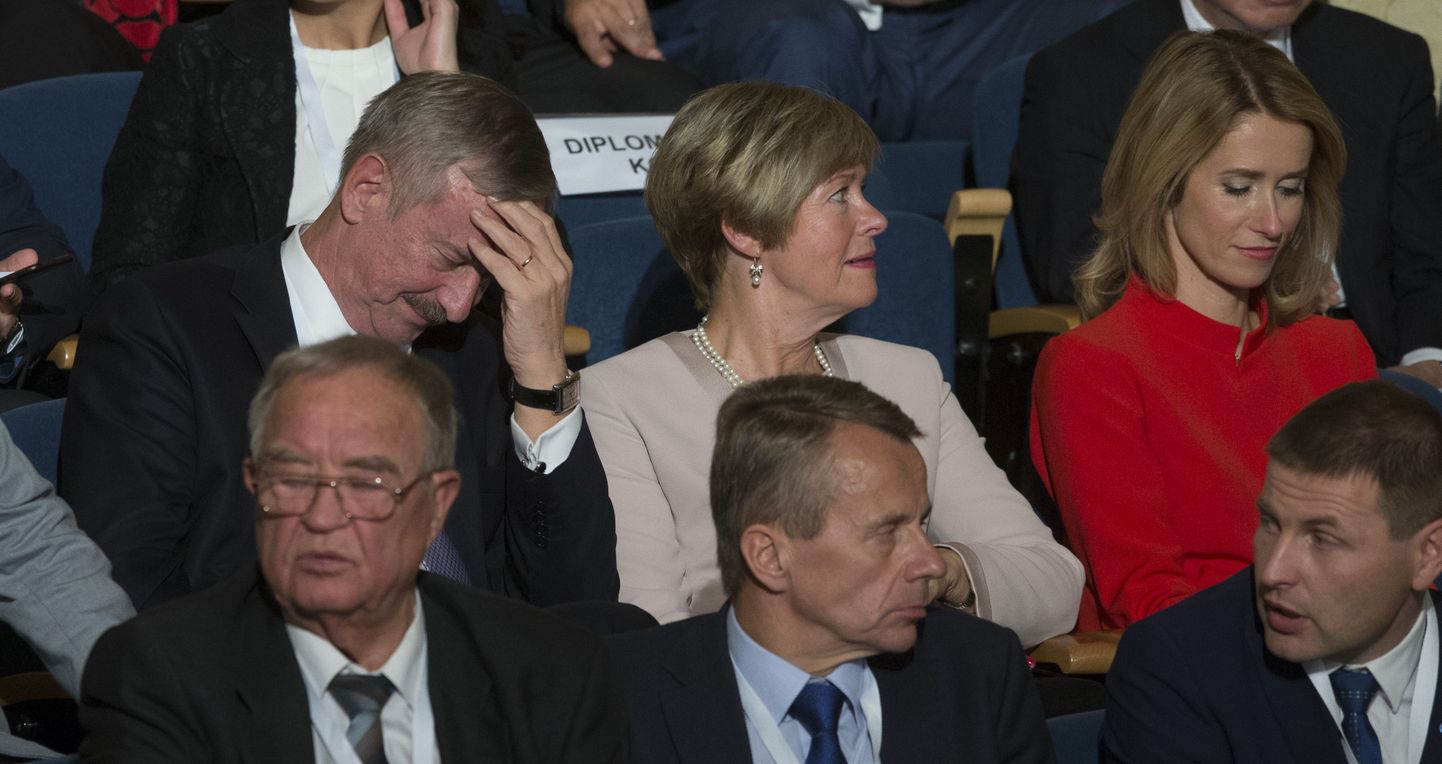The „party“ with the most electors, that is to say delegates of non-party election coalitions, largely dined with their favored candidates. And they clearly went back into the concert hall to make a choice. Electors from the country so to speak, with some loyal members of real parties, did their work properly so as not to return home empty-handed.
EKRE made it no secret they had no intention of voting for either Jõks or Kallas. At least ten empty ballots from them.
„I know what to do if the president is elected – you stand up and clap – but what to do if he or she is not elected?“ Center Party member Viktor Vassiljev asked.
When Vassiljev's second scenario materialized half an hour later, the closing words of moderator Eiki Nestor were met with sporadic clapping at best, while most people started filing out of the hall. Indeed – what is there to applaud. Security guards who had been sent to serve the new president also had to leave without one.
Some of the flowers meant for the new president were returned, while Allar Jõks' wife was carrying a handful of yellow blossoms.
The day of Tartu parish elector Üllar Loks lasted for 12 hours. The elector from neighboring Tähtvere, Urmas Tartes, picked Loks up a little after 8 a.m. „We headed for Tallinn in an optimistic mood – in hopes of electing the president,“ said first time elector, principal of Lähte School, Loks.


/nginx/o/2016/01/05/4853315t1h2ae9.jpg)
